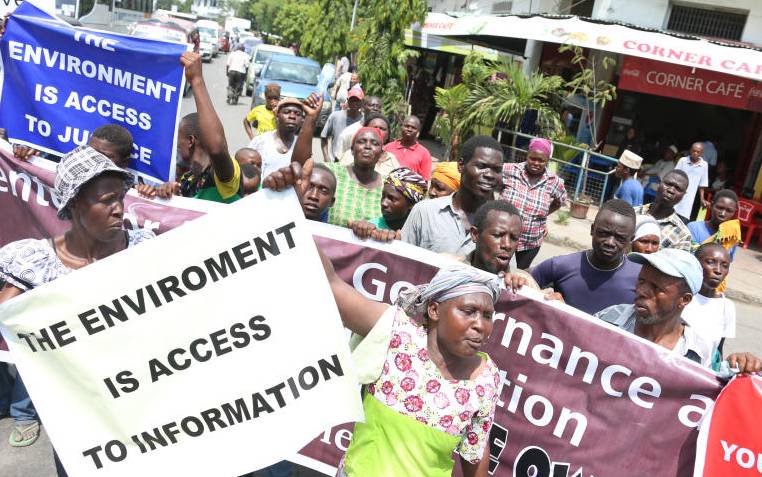
Residents of Owino Uhuru Estate in Changamwe, Mombasa County, and officials from Center for Justice Governance and environmental action march along Jomo Kenyatta Avenue in Mombasa. They wanted the National Environmental Management Authority [NEMA] to stop lead poisoning by metal manufacturing companies at Owino Uhuru estate in Mombasa. The estate has a population of 3,500 people. Six people died of lead poisoning this year in 2015. [Omondi Onyango, Standard]
Environment Court has ordered the government to compensate residents of Changamwe’s Owino Uhuru Estate Sh1.3 billion for the health complications suffered due to lead poisoning.